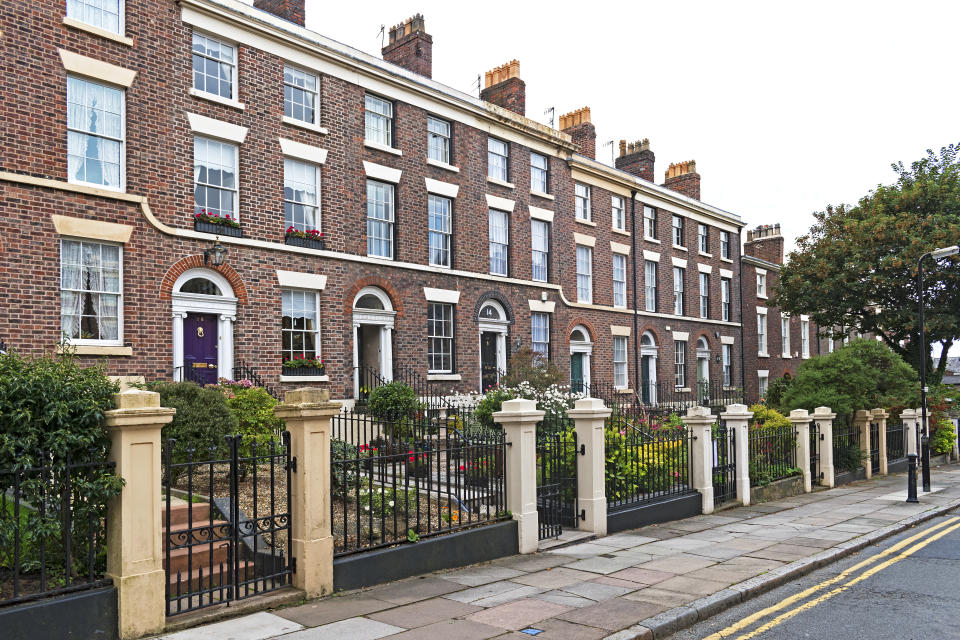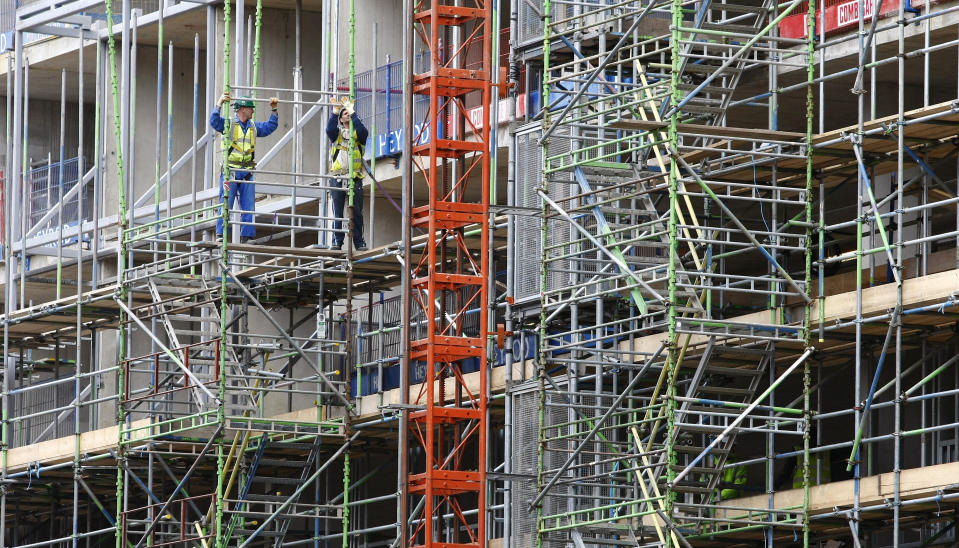How coronavirus fears threaten to upset the UK property market

A ‘Boris bounce’ has lifted the UK property market, but the coronavirus marks a growing threat to the fragile recovery in activity since December’s election.
A poll of UK surveyors published on Thursday provides the latest evidence the market is turning a corner after years of dampened activity. An easing of Brexit uncertainty has boosted confidence among buyers, sellers and builders alike.
Members of the Royal Institute of Chartered Surveyors (RICS) report enquiries from aspiring buyers and tenants, property listings and prices all continued to rise in February.
But concerns over the economic impact of the coronavirus outbreak are mounting by the day. There are growing signs of knock-on effects on the property sector, from buyers and sellers pulling out of viewings to mortgage rates falling after an emergency interest rate cut.
Virus fears over property viewings
With public health chiefs warning close, sustained contact can spread the coronavirus, many individuals and organisations are trying to minimise face-to-face meetings.
Anecdotal evidence suggests such concerns have begun to affect the property market, sometimes in disturbing ways. Patrick Alvarado, director of estate agent Nicolas Van Patrick in Knightsbridge, London, told Yahoo Finance UK some sellers had cancelled viewings once they found out a potential buyer was from Hong Kong.
“We have another tenant who is renting a flat which is up for sale who will not allow viewings to anyone from China or Asia,” he said.
One prospective British buyer, 27, was also surprised to hear recently that two booked viewings in north London had been cancelled. “An agent said it was because the seller was fearful of letting people into their home, especially as they had young children.”
Read more: What the UK Budget means for you and your finances
She told Yahoo Finance UK another agent had declined to shake her hand, instead offering her a fist bump.
Jeremy Leaf, a north London estate agent and former RICS residential chairman, said his viewings were around a quarter lower than expected at this time of year. Another estate agent is reported to have resorted to video tours.
It is hard to know how common such incidents are. Most respondents in RICS’ latest survey said conditions were positive, not reporting any immediate impact but fearful of future effects.
But the survey began at the start of February, so may not provide the most up-to-date picture. RICS itself warned on Wednesday the outbreak “could adversely affect viewings and the traditional spring house selling season.”
Buyers cautious but boosted by lower rates
While concerns about the virus’ impact or viewings may deter some buyers, others may find a competitive mortgage market hard to resist.
The Bank of England slashed rates back to a historic low of 0.25% on Wednesday morning in a shock emergency move to keep credit flowing to firms amid the coronavirus outbreak.
Prospective buyers are likely to have more access to cheaper mortgages if banks pass on the rate cut to customers. The move could increase the number of households able to get on the ladder, remortgaging or tempted to buy a new home, fuelling demand and potentially pushing up prices.
But Laura Suter, personal finance analyst at AJ Bell, noted: “Mortgage rates are already near record lows and it’s unlikely providers will be able to cut them much more.”
Read more: What the BoE rate cut means for your borrowing and savings
A significant escalation in the number of cases or of absences from work could also limit the number of buyers keen or able to start the lengthy buying process. The government itself has warned up to one in five of the UK workforce could be off work in a reasonable worst-case scenario.
Alvarado said one buyer from Pakistan, a doctor, had put his planned investment in a London property on hold as he was having to deal with an outbreak in Karachi. He added that Chinese buyer numbers were also “noticeably down” amid significant travel restrictions, which could have a “severe” impact on demand in London’s high-end residential market.
But a 2% stamp duty surcharge on overseas buyers confirmed in Wednesday’s Budget could push in the other direction, fuelling demand until it takes effect in April 2021.
Sellers and builders losing confidence
While surveys show buyers’ interest surged almost immediately after the December election as Brexit uncertainty eased, nerves appear to remain high among sellers. A very recent recovery in the number of new homes being put up for sale came only after buyer numbers picked up.
Simon Rubinsohn, RICS chief economist, said supply had continued to rise in February, but the number of properties on estate agents’ books remained at “historically low levels.”
It suggests the ‘Boris bounce’ is fragile, and it may not take much for homeowners who have already put off selling for months or years amid Brexit uncertainty to delay further over the outbreak. That could sustain rising prices, benefiting homeowners who do sell but making buying even more expensive.

Read more: Halifax warns on coronavirus risk to the housing market
A recent poll by London letting and estate agent Benham and Reeves found 9% of 1,000 sellers and buyers surveyed had pulled out from current sales or purchases. A further 9% who had intended to sell up or buy soon put their plans on hold instead.
The outbreak could even have an impact on the supply of new properties. Developer Berkeley put a planned £455m ($583m) giveaway to shareholders on ice on Wednesday amid fears about the “unknown” ultimate impact of the outbreak. Construction firms are also reporting growing supply chain issues with Chinese factories on lockdown, including increased delays and costs for raw materials.
But more than four in five buyers and sellers surveyed it had not affected their plans. Levels of residential construction and property listings continued to rise last month. Many estate agents report their fear of its impact, rather than experiencing it themselves.
Yet even the uncertainty alone could reverse the fragile rebound in confidence, as with Brexit in recent years.
As Guy Harrington, CEO of real estate lender Glenhawk, recently noted: “The question on everyone lips now will be whether the damage coronavirus is doing to other parts of the economy seeps into the housing market, and if so, just how catastrophic will it be?”

 Yahoo Finance
Yahoo Finance 